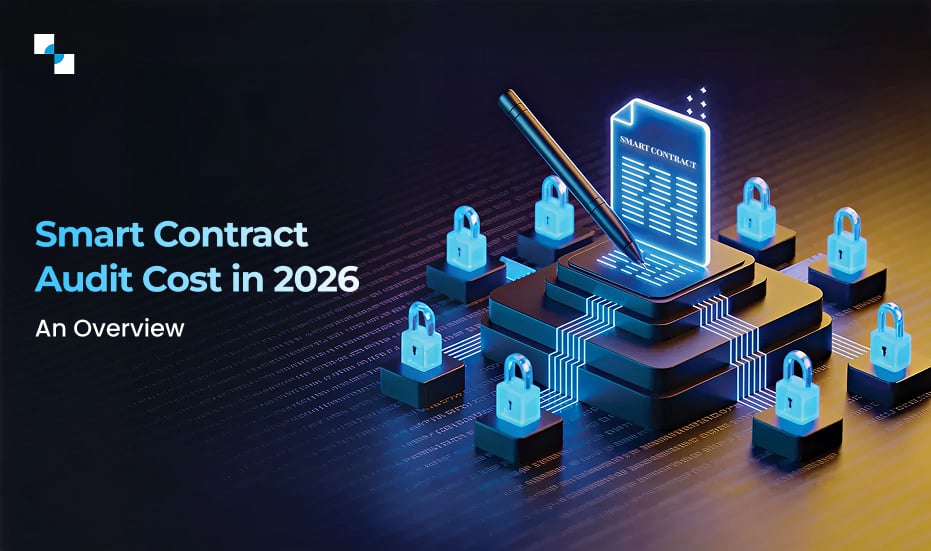Smart contract testing refers to the systematic evaluation and validation of the performance, security, and functionality of self-executing agreements embedded directly into the code on a blockchain. This ensures the accuracy, resilience, and reliability of smart contracts, making testing an indispensable stage in a blockchain-powered product development lifecycle.
Smart contract testing is carried out by a team of smart contract development professionals, comprising blockchain developers and quality assurance engineers. Blockchain programmers possess expertise in programming languages such as Solidity for Ethereum contracts, and they play a crucial role in coding and initial unit testing.
Additionally, smart contract auditors may participate in special security audits, leveraging their knowledge of blockchain security protocols.
Typically, these professionals hold rich experience in software development, knowledge of blockchain technology, and understanding of best practices for smart contract development.
Types of Smart Contract Testing
Unit Testing
Unit testing involves checking specific methods or functions within a smart contract to verify their correct operation. It ensures that each function performs its intended tasks and helps in identifying and resolving errors in specific sections of the code.
Integration Testing
Integration testing validates that the different components of a smart contract operate as intended. It ensures accurate and error-free data exchange between the various modules and functionalities of a smart contract.
Functional Testing
Functional testing examines the overall functionality of a smart contract, aiming to confirm that it meets the specified requirements and performs the intended actions accurately.
Security Audits
Smart contract development services providers perform smart contract audits to identify weaknesses and potential security issues. These audits ensure the resilience of the smart contract against common attacks like reentrancy, overflow, and unauthorized access, thereby preventing security breaches.
Performance Testing
Performance testing assesses the throughput, scalability, and responsiveness of a smart contract under different situations. It helps calculate transaction speed, identify bottlenecks, and verify that the smart contract can handle the expected demand.
Gas Consumption Testing
Gas consumption testing determines the amount of gas, or processing power, required for specific operations of a smart contract. Its primary objectives include ensuring transaction profitability and optimizing the code for the application.
Code Review
Code review involves smart contract development experts reviewing the code of a smart contract. This process ensures that the smart contract complies with the coding standards as well as best practices, identifies potential issues, and enhances the overall quality of the code.
Regression Testing
Regression testing is performed to ensure that any upgrades or changes made to a smart contract do not disrupt its existing functionality or introduce new errors or issues. It plays a crucial role in maintaining the reliability of the smart contract as it evolves over time.
Usability Testing
Usability testing evaluates how user-friendly a smart contract is, considering factors such as how easily users can interact with the contract. This type of testing contributes to ensuring that users can interact with the smart contract without unnecessary complications.
Why is Smart Contract Testing Important?
Smart contracts play a crucial role in blockchain ecosystems as well as decentralized applications (DApps). Testing of smart contracts is vital for identifying and resolving security vulnerabilities in the code. Rigorous testing helps prevent potential exploits, such as unauthorized access and reentrancy attacks, safeguarding users and assets. Given that smart contracts often manage sensitive data and assets, testing is paramount for ensuring their security.
Engineers of a smart contract development company also perform testing to ensure the accurate execution of planned activities by smart contracts. Functional testing helps ensure the desired functioning of the smart contract across various situations and scenarios, helping identify and rectify logic issues.
Moreover, testing contributes to maintaining a proper code structure, adherence to best practices, and the creation of comprehensive documentation. These elements collectively enhance the overall quality of the code.
Smart contracts interact with other components, such as protocols or external services in decentralized applications. Testing helps ensure interoperability, confirming that the smart contract works within the broader network and seasmlessly communicates with other components.
Compliance with legal and regulatory requirements may be necessary through smart contracts. Testing helps in identifying and rectifying potential compliance issues, ensuring that the smart contract aligns with the rules and regulations.
Identifying and addressing issues early in the smart contract development process proves more cost-effective than after deployment. Extensive testing minimizes the risk of financial losses and reputational damage.
What Problems can Arise if Smart Contracts are not Tested Thoroughly?
The lack of proper testing for smart contracts can give rise to a multitude of potential issues impacting various aspects of their security and functionality. Operational challenges, such as unforeseen defects or coding errors, may affect the operations of a smart contract, consequently disrupting the functioning of blockchain-based systems or decentralized applications (DApps).
Moreover, inadequate testing makes smart contracts vulnerable to security risks, such as overflow flaws and reentrancy exploits.
Smart contracts that are not thoroughly tested extend their consequences beyond technical challenges, leading to financial risks arising from coding errors that could result in asset transfers or financial losses, particularly in decentralized finance (DeFi) applications.
Additionally, the project or company investing in smart contract development may suffer significant reputational damage. Doubts about the system’s reliability among users and stakeholders could have a negative impact on the reputation of blockchain-based apps as a whole. Consequently, untested smart contracts present a substantial risk to the financial well-being and reputation of involved parties.
Get Obligation Free Quote
[widget id=”custom_html-3″]
Why Antier for Smart Contract Development and Audit?
At Antier, we have a team of experienced blockchain engineers who diligently take care of every aspect of smart contract development – from secure coding to thorough testing and regular audits. Our emphasis not only lies on building highly secure smart contracts but also regularly inspecting them to ensure enterprise-grade security. We understand that secure smart contracts translate into secure decentralized applications, thus we take security of smart contracts seriously.
Whether you want to build a smart contract-based application or need to get your existing smart contract audited by industry experts, we offer customized smart contract development services to cater to diverse needs.
Connect with our subject matter experts to discuss your business requirements.







